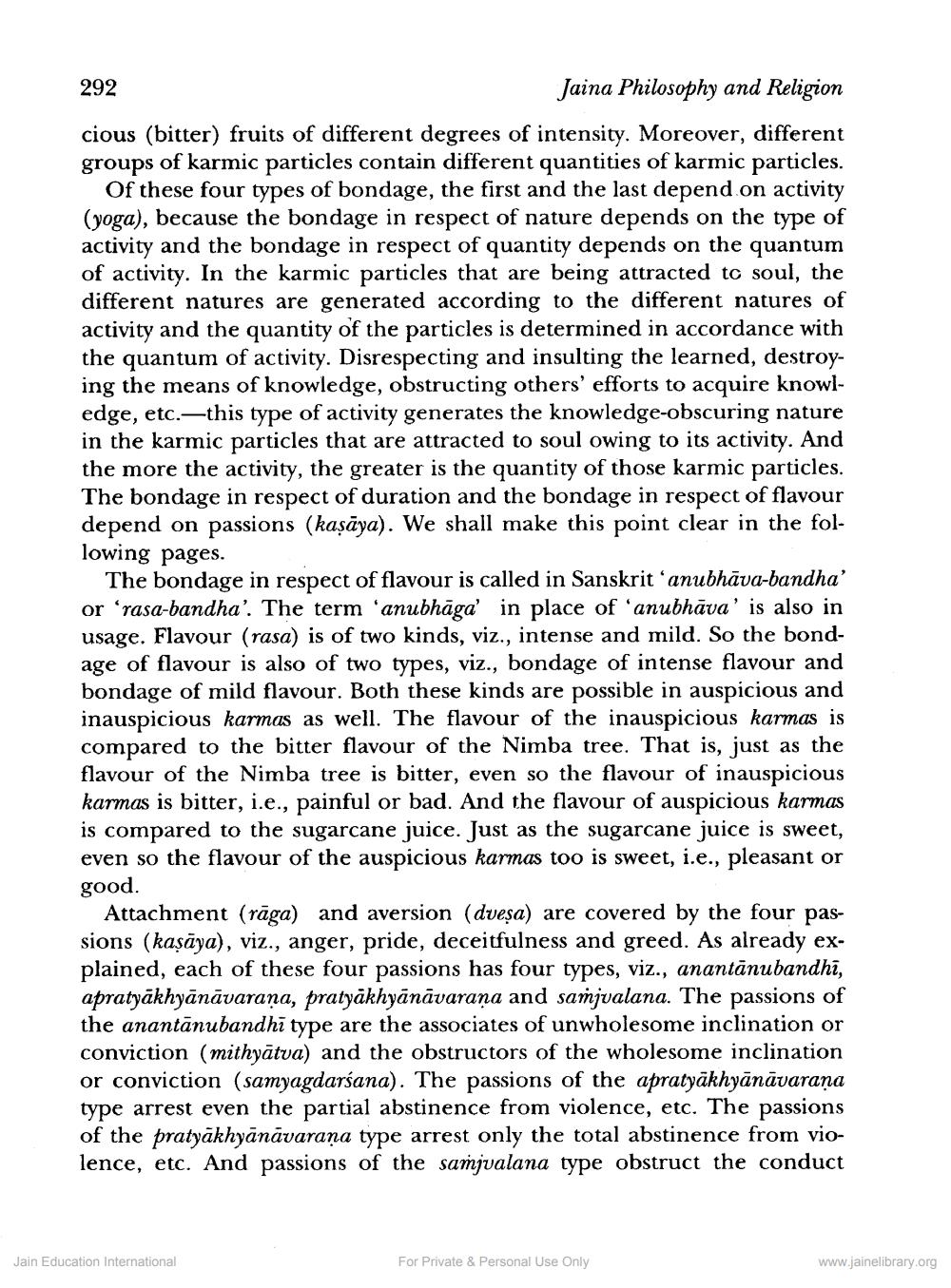________________
292
Jaina Philosophy and Religion
cious (bitter) fruits of different degrees of intensity. Moreover, different groups of karmic particles contain different quantities of karmic particles.
Of these four types of bondage, the first and the last depend on activity (yoga), because the bondage in respect of nature depends on the type of activity and the bondage in respect of quantity depends on the quantum of activity. In the karmic particles that are being attracted to soul, the different natures are generated according to the different natures of activity and the quantity of the particles is determined in accordance with the quantum of activity. Disrespecting and insulting the learned, destroying the means of knowledge, obstructing others' efforts to acquire knowledge, etc.—this type of activity generates the knowledge-obscuring nature in the karmic particles that are attracted to soul owing to its activity. And the more the activity, the greater is the quantity of those karmic particles. The bondage in respect of duration and the bondage in respect of flavour depend on passions (kaṣāya). We shall make this point clear in the following pages.
The bondage in respect of flavour is called in Sanskrit 'anubhāva-bandha' or 'rasa-bandha'. The term 'anubhāga' in place of 'anubhāva' is also in usage. Flavour (rasa) is of two kinds, viz., intense and mild. So the bondage of flavour is also of two types, viz., bondage of intense flavour and bondage of mild flavour. Both these kinds are possible in auspicious and inauspicious karmas as well. The flavour of the inauspicious karmas is compared to the bitter flavour of the Nimba tree. That is, just as the flavour of the Nimba tree is bitter, even so the flavour of inauspicious karmas is bitter, i.e., painful or bad. And the flavour of auspicious karmas is compared to the sugarcane juice. Just as the sugarcane juice is sweet, even so the flavour of the auspicious karmas too is sweet, i.e., pleasant or good.
Attachment (rāga) and aversion (dveşa) are covered by the four passions (kaşāya), viz., anger, pride, deceitfulness and greed. As already explained, each of these four passions has four types, viz., anantānubandhi, apratyākhyānāvarana, pratyākhyānāvaraña and samjualana. The passions of the anantānubandhi type are the associates of unwholesome inclination or conviction (mithyātva) and the obstructors of the wholesome inclination or conviction (samyagdarśana). The passions of the apratyākhyānāvarana type arrest even the partial abstinence from violence, etc. The passions of the pratyākhyānāvarana type arrest only the total abstinence from violence, etc. And passions of the samjualana type obstruct the conduct
Jain Education International
For Private & Personal Use Only
www.jainelibrary.org




